Related Research Articles
Herbert Whitton Sumsion CBE was an English musician who was organist of Gloucester Cathedral from 1928 to 1967. Through his leadership role with the Three Choirs Festival, Sumsion maintained close associations with major figures in England's 20th-century musical renaissance, including Edward Elgar, Herbert Howells, Gerald Finzi, and Ralph Vaughan Williams. Although Sumsion is known primarily as a cathedral musician, his professional career spanned more than 60 years and encompassed composing, conducting, performing, accompanying, and teaching. His compositions include works for choir and organ, as well as lesser-known chamber and orchestral works.

Harold Edwin Darke was an English composer and organist. He is particularly known for his choral compositions, which are an established part of the respertoire of Anglican church music. Darke had a long association with the church of St Michael, Cornhill, in the City of London.
Edward Woodall Naylor was an English organist and composer.
David John Briggs is an English organist and composer. He started his career as a cathedral organist as Assistant Organist at Hereford Cathedral before becoming the organist of Truro and Gloucester Cathedrals. Heavily influenced by Jean Langlais and Pierre Cochereau, Briggs is regarded as one of the world's finest improvisors, and now works as a concert organist. He is also a composer of choral and organ music, and has transcribed many orchestral works for solo organ, as well as many of Cochereau's recorded improvisations.

Sir Alfred Herbert Brewer was an English composer and organist. As organist of Gloucester Cathedral from 1896 until his death, he contributed a good deal to the Three Choirs Festival for 30 years.
Ronald Edward Perrin was a British cathedral organist.
Percy William Whitlock, was an English organist and post-romantic composer.
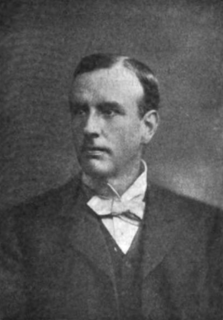
Alan Gray was an English organist and composer.

Hugh Blair was an English musician, composer and organist.
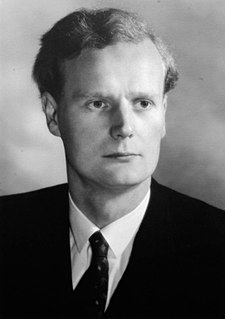
Richard Hey Lloyd was a British organist and composer.

Charles Harford Lloyd was an English composer who became a well-known organist in his time.

The Festival Te Deum, Op. 32, a sacred choral piece by the English composer Benjamin Britten, is a setting of the Te Deum from the Book of Common Prayer. It was composed in 1944 to celebrate the centenary of St Mark's Church, Swindon, and was first performed there in 1945.

Magnificat and Nunc dimittis for St Paul's Cathedral, also known as the St Paul's Service, is a setting by the English composer Herbert Howells of the Magnificat and Nunc dimittis for the Anglican service of Evening Prayer. Scored for four-part choir and organ, it was written in 1950 for St Paul's Cathedral in London.
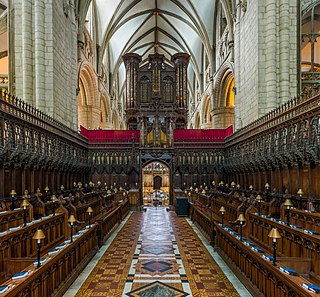
Magnificat and Nunc dimittis for Gloucester Cathedral, also known as the Gloucester Service, is a setting by the English composer Herbert Howells of the Magnificat and Nunc dimittis for the Anglican service of Evening Prayer. Scored for four-part choir and organ, it was written in 1946 for Gloucester Cathedral. It was published by Novello in 1947.
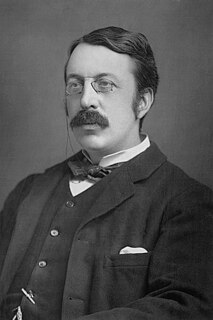
The Service in B-flat major, Op. 10, is a collection of Anglican church music by Charles Villiers Stanford for mixed choir and organ containing the canticles for each of the principal services of the Anglican Church. Stanford set the traditional liturgical texts in English in 1879 when he was the organist of Trinity College, Cambridge. They were published by Novello in 1902. Stanford orchestrated the work in 1903, with additional organ.

Magnificat and Nunc dimittis in D is a choral setting by the Irish composer Charles Wood of the Magnificat and Nunc dimittis for the Anglican service of Evening Prayer. Scored for four-part choir and organ, it was written in 1898. It is also known as Evening Service in D major.

Collegium Regale is a collection of choral settings by the English composer Herbert Howells of the canticles for the Anglican services of Mattins, Holy Communion and Evening Prayer. Scored for four-part choir, solo tenor and organ, the pieces were written between 1944 and 1956 "for the King's College, Cambridge". The first of the pieces were first published by Novello in 1947, and they have become a popular piece of music in the Anglican church music repertoire.

Gerald Mills Hendrie,, is an English scholar, composer, organist, pianist and harpsichordist.
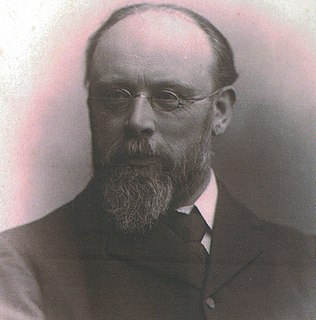
James Cooksey Culwick was an English musician who is most well known for being organist of the Chapel Royal and founding the Orpheus Choir, both in Dublin, Ireland. The Culwick Choral Society is both named in honour of Culwick and traces its lineage to the Orpheus Choir.